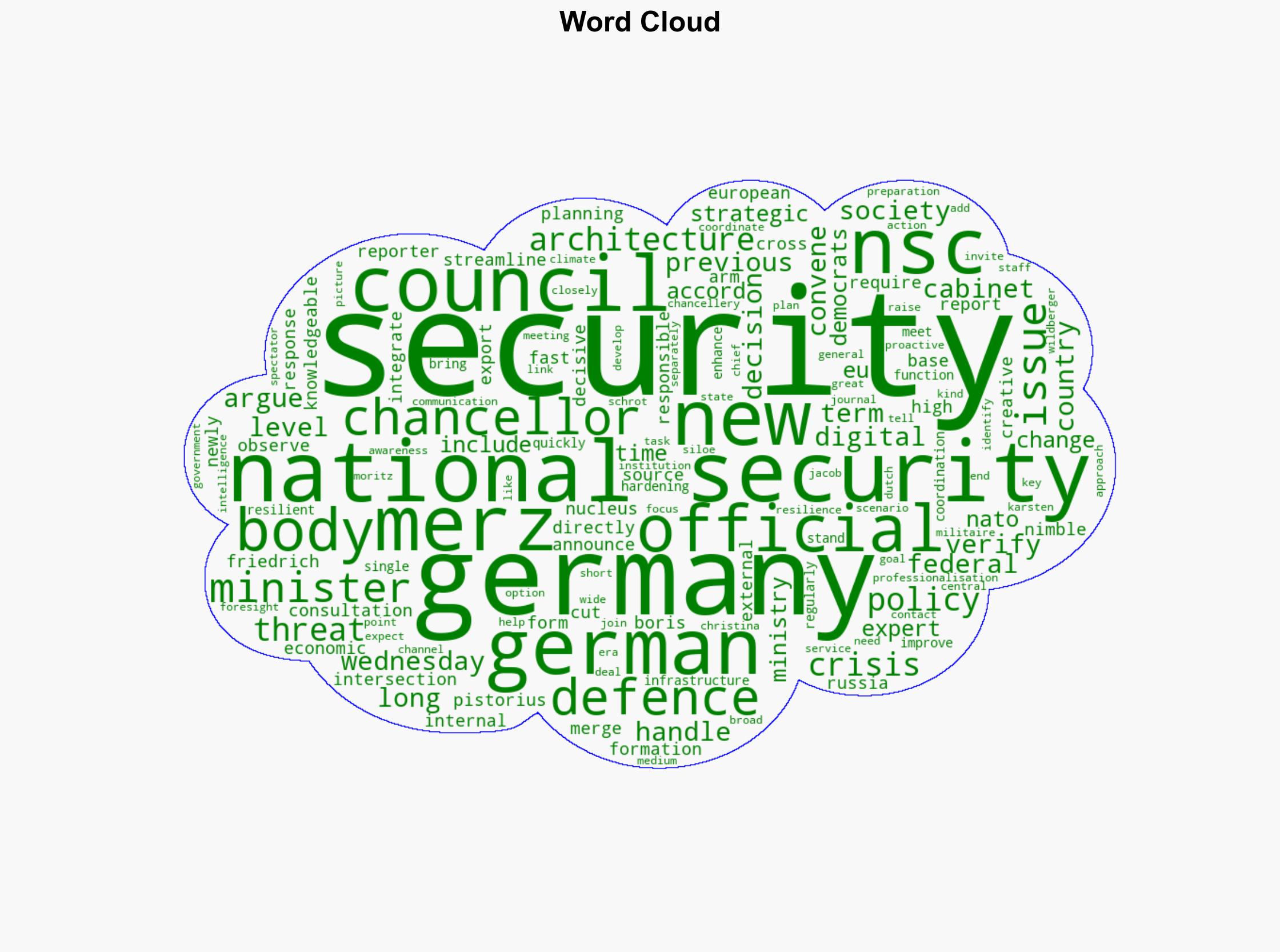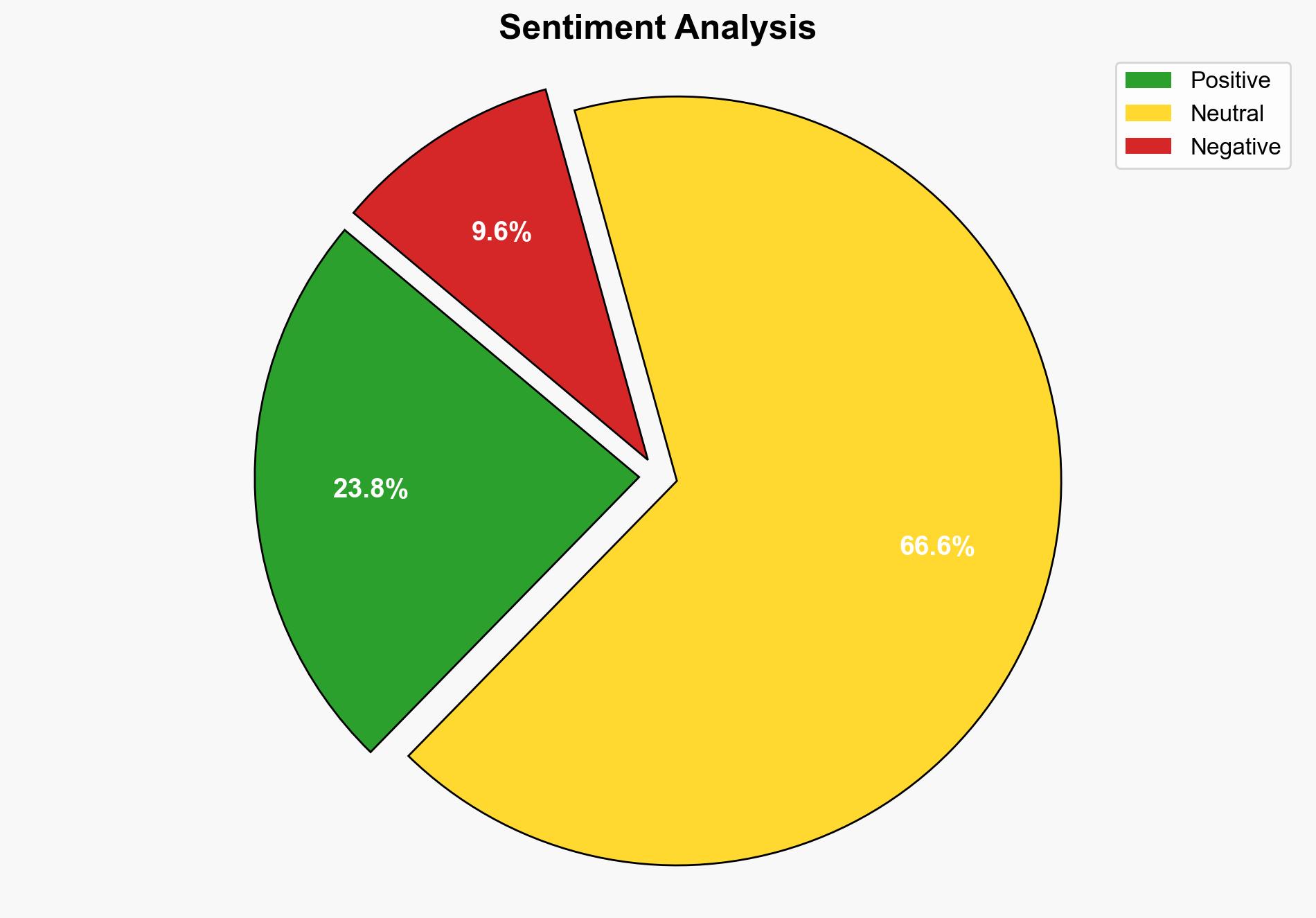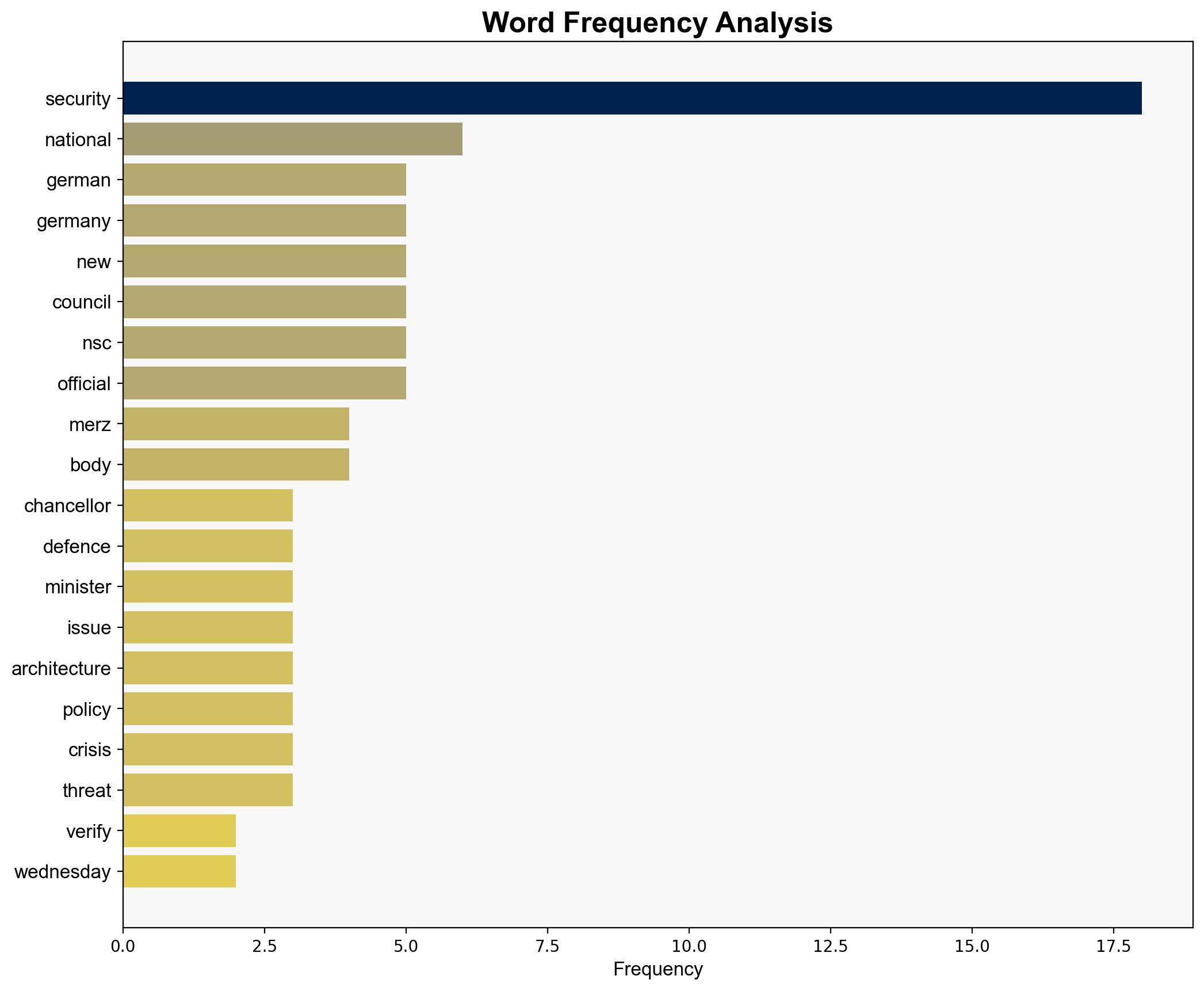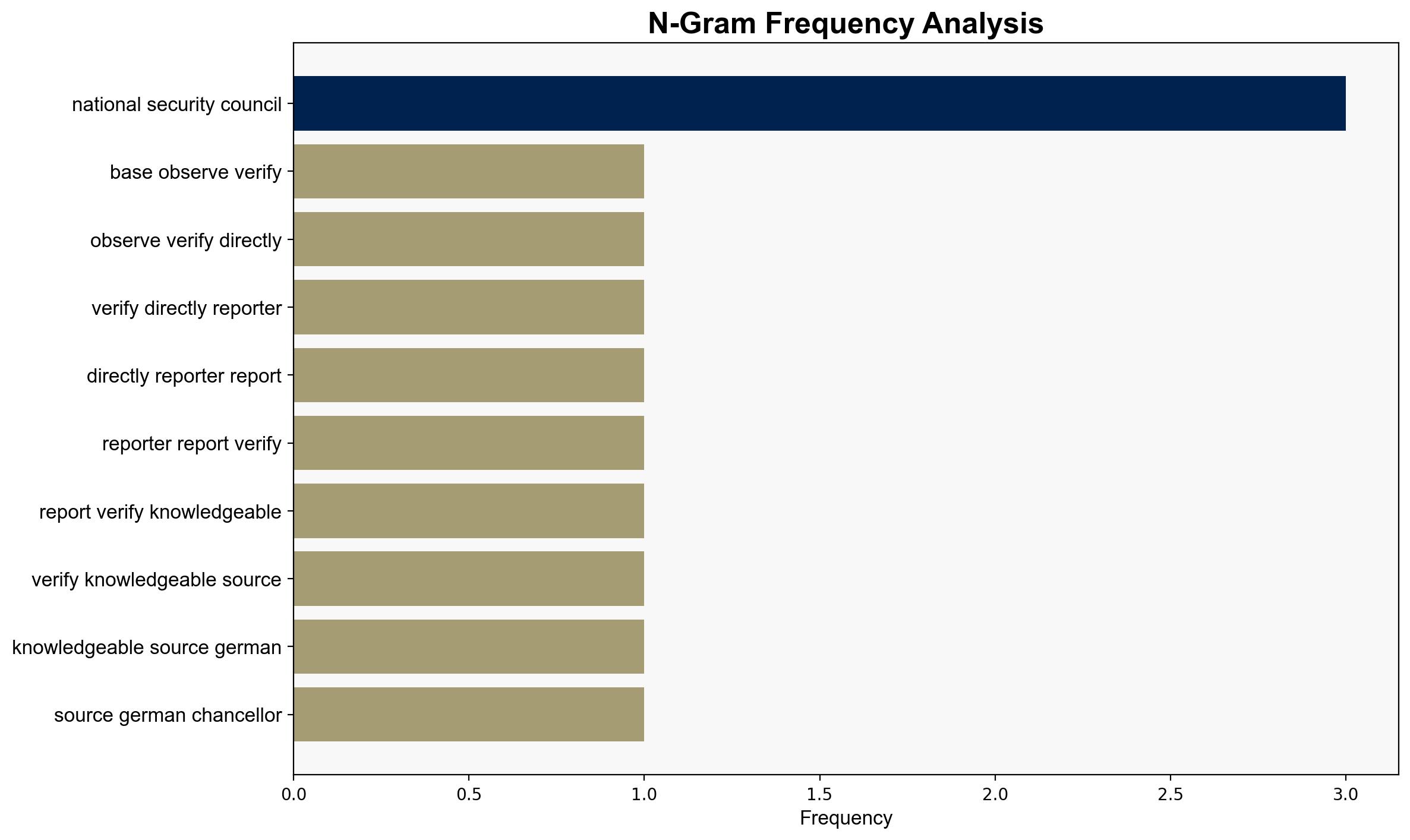Germany to streamline security policy decisions with new National Security Council – EURACTIV
Published on: 2025-08-27
Intelligence Report: Germany to streamline security policy decisions with new National Security Council – EURACTIV
1. BLUF (Bottom Line Up Front)
Germany’s establishment of a new National Security Council (NSC) is a strategic move to centralize and enhance its security policy framework. The most supported hypothesis is that this initiative aims to improve Germany’s responsiveness to emerging threats by integrating various security domains. Confidence level: Moderate. Recommended action: Monitor the NSC’s development and assess its impact on Germany’s security policy and international collaborations.
2. Competing Hypotheses
1. **Hypothesis A**: The NSC is primarily intended to streamline decision-making processes and enhance Germany’s ability to respond to security threats by integrating internal and external security policies.
2. **Hypothesis B**: The NSC is a political maneuver by Friedrich Merz and his allies to consolidate influence over Germany’s security policy, potentially sidelining other political factions.
Using ACH 2.0, Hypothesis A is better supported due to the emphasis on strategic foresight and cross-cutting issues in the source text, which aligns with Germany’s need for a cohesive security strategy. Hypothesis B lacks direct evidence but remains plausible given the political dynamics mentioned.
3. Key Assumptions and Red Flags
– **Assumptions**: It is assumed that the NSC will effectively integrate various security domains without significant bureaucratic resistance. Another assumption is that the NSC will maintain a balanced approach without excessive political influence.
– **Red Flags**: Potential resistance from existing institutions and political factions could undermine the NSC’s effectiveness. The lack of specific details on how the NSC will operate raises questions about its practical implementation.
4. Implications and Strategic Risks
The creation of the NSC could lead to improved coordination in addressing security threats, enhancing Germany’s resilience. However, if political maneuvering dominates, it may result in fragmented policies and reduced effectiveness. The integration of digital and climate security into national security highlights the evolving nature of threats. Geopolitically, Germany’s enhanced security posture could influence EU and NATO dynamics, potentially leading to shifts in regional power balances.
5. Recommendations and Outlook
- Monitor the NSC’s development and its impact on Germany’s security policy and international collaborations.
- Engage with German counterparts to understand the NSC’s strategic priorities and potential areas for collaboration.
- Scenario-based projections:
- Best Case: The NSC successfully integrates security domains, enhancing Germany’s resilience and influence within the EU and NATO.
- Worst Case: Political infighting undermines the NSC’s effectiveness, leading to fragmented security policies.
- Most Likely: The NSC improves coordination but faces challenges in balancing political interests and operational efficiency.
6. Key Individuals and Entities
– Friedrich Merz
– Boris Pistorius
– Jacob Schrot
– Christina Moritz
– Karsten Wildberger
7. Thematic Tags
national security threats, cybersecurity, counter-terrorism, regional focus





